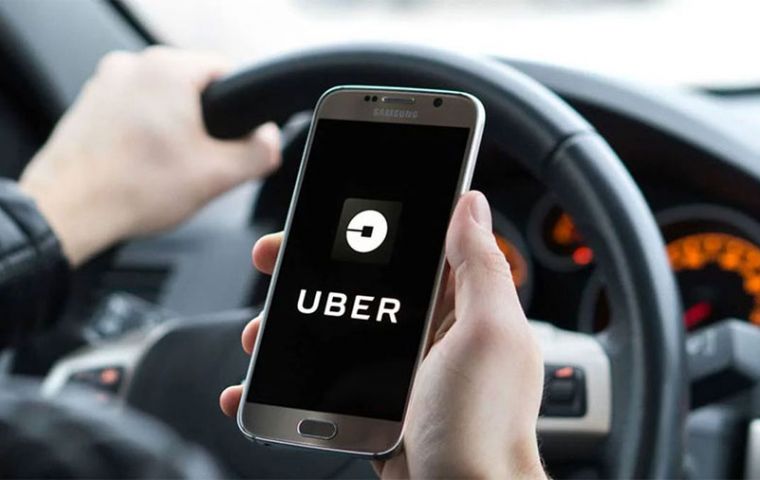MercoPress. South Atlantic News Agency
Brazilian higher court for labor rules in favor of Uber: no employment relation between the company and drivers
 Brazil is the second-biggest market for Uber after the United States, and Sao Paulo is its top city by number of rides, ahead of a metropolis like New York.
Brazil is the second-biggest market for Uber after the United States, and Sao Paulo is its top city by number of rides, ahead of a metropolis like New York. A Brazilian higher court for labour ruled this week that there was no employment relationship between Uber and its drivers, siding with the ride-hailing company against a Sao Paulo driver. The federal judge in Brasilia ruled against recognizing an employer-employee link, arguing that Uber drivers can disconnect at any time from the app and have a flexible work schedule.
The federal judge in Brasilia ruled against recognizing an employer-employee link, arguing that Uber drivers can disconnect at any time from the app and have a flexible work schedule.
Until today, lower courts had decided on labor issues involving Uber, but now a federal court has ruled and its decision, while not binding for other similar cases, is expected to set the standard.
The ruling was welcomed by Uber, which said in a statement it supported dozens of previous decisions in Brazilian courts establishing that its drivers are not employees.
Uber had argued that its platform is a digital intermediary, not an employer, and that drivers accept that condition when they sign on.
Brazil is the second-biggest market for Uber after the United States, and Sao Paulo is its top city by number of rides, ahead of a metropolis like New York.
The company said the court had recognized the innovative character of its platform that partners with more than 600,000 drivers in over 100 cities in Brazil, serving more than 22 million people who use it app.
The federal labor judge, Breno Medeiros, found that the wide flexibility of the drivers in terms of deciding where they want to drive and the number of customers they serve each day was “incompatible” with an employer-employee relationship.
Medeiros said the take-home pay of drivers from each ride, between 75% and 80% of the total fare, was enough to characterize the relationship with Uber as a partnership.




Top Comments
Disclaimer & comment rulesCommenting for this story is now closed.
If you have a Facebook account, become a fan and comment on our Facebook Page!